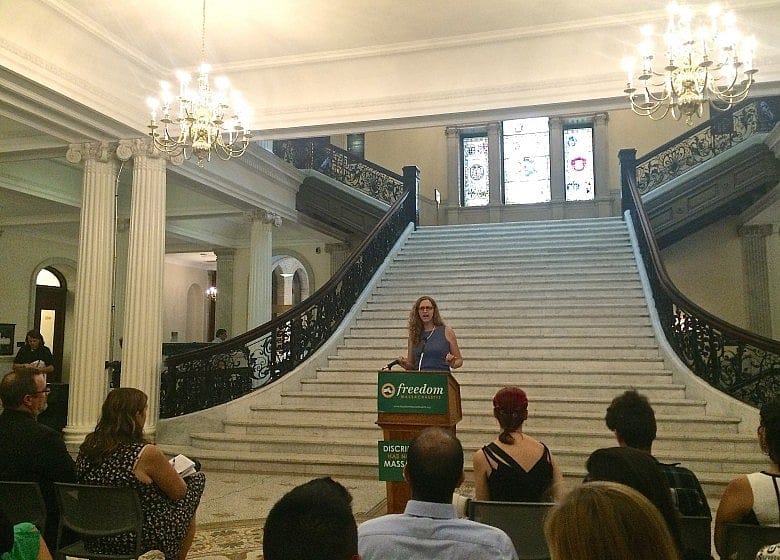Transgender activists rally in support of so-called ‘bathroom bill’

BOSTON –Scores of transgender activists flooded the State House Thursday for a rally in support of pending legislation that promises to expand the state's anti-discrimination law to add protections for transgender people in places of "public accommodation."
Supporters of the measure, sponsored by Rep. Byron Rushing (D-Boston) and Rep. Denise Provost (D-Somerville), say the bill (H 1577, S 735) will protect transgender people from discrimination in public places such as movie theaters and restaurants.

